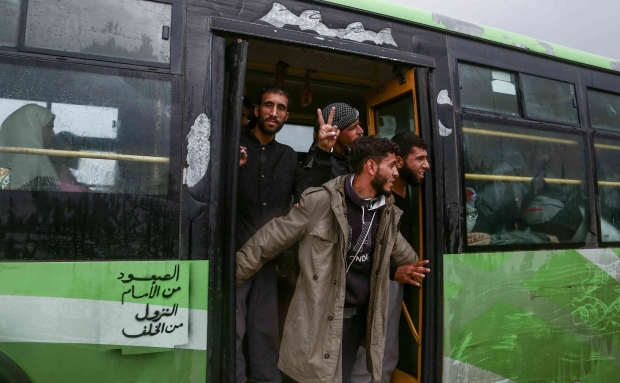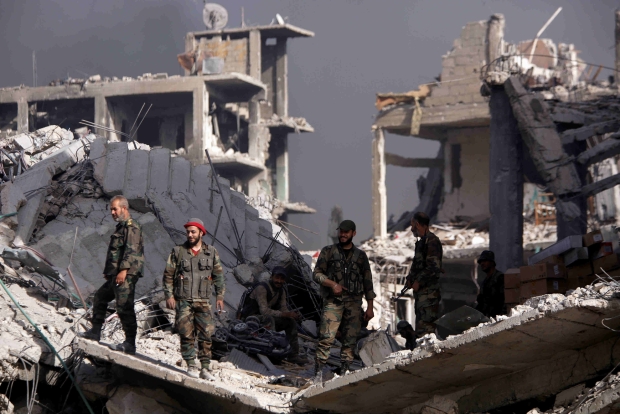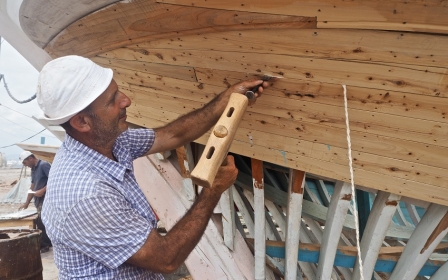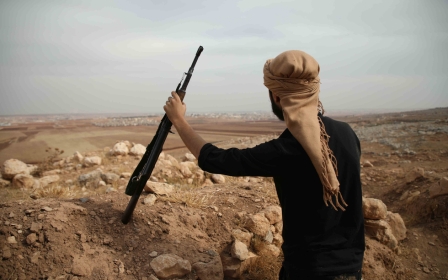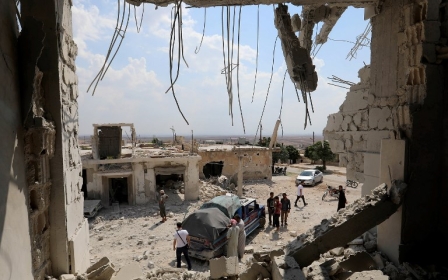'Just ink on paper': Assad's offer of amnesty leaves Syrian 'runaways' cold
IDLIB CITY, Syria – Omar Shihabi knew he had two choices when the Syrian government retook his hometown in the Damascus countryside from rebel forces: flee or face military conscription.
He chose the former, and fled with his family north to opposition-held Idlib, where he now lives free from Bashar al-Assad’s army, but unemployed and caught in a rebel enclave that’s independence is surely finite as the Syrian government consolidates its control of the country.
Young men like Shihabi are exactly the kind Assad is trying to bring back into the fold. Last week, an amnesty was offered to Syrians who have avoided military service or deserted the army.
The decree, issued by Assad and publicised over various social media channels, is valid for four months for men in Syria, and six for those residing outside the country.
The amnesty decree is just ink on paper
- Omar Shihabi, displaced Syrian
Draft dodgers and deserters, of which there are tens of thousands, are expected to serve in the army once their status has been regularised.
But for the many Syrian youths who chose to flee rather than serve in the Syrian Arab Army’s ranks, this apparent offer of amnesty is not one they would ever take up.
"This army is not a national army, but one for the defence of Assad and his government," Shihabi tells Middle East Eye, adding that he doubts that the terms will even be properly enforced.
"The amnesty decree is just ink on paper,” he says.
Avoiding an obligation
All Syrian men over the age of 18, except only sons, are required to fulfil national service. Conscription can be postponed by continuing studies.
Students often fail exams on purpose in order to retake years and put off being enlisted, while many young men hide at home to avoid being picked up by authorities.
Last year, military police patrols in the city of Tartous rounded up 220 Syrian youths on one day as they celebrated Lionel Messi’s win for Barcelona against Real Madrid in the Classico football match, according to local media.
Early in the conflict many young Syrian men chose to fight for rebel groups rather than the government, and the army was hit by multiple desertions as youths crossed over to the enemy’s side.
But not all Syrian youths have sought to avoid fighting for Assad over the past seven years.
“Those who preferred to remain under Damascus’s control joined the ranks of the army or the loyalist militias ... and some were killed on the hot fronts during battles,” Shihabi said.
Broken promises
Reconciliation deals with rebels and civilians living in opposition-held areas have been ongoing for more than two years.
As pro-Syrian government forces have closed in on and retaken opposition strongholds such as east Aleppo, Darayya, Daraa and the Eastern Ghouta, deals have been struck with the local inhabitants.
Some rebels agreed to cross over and fight under Assad’s banner. Many civilians stayed put, with the promise that their security would be ensured. Many others evacuated to Idlib, distrustful of the government’s promise they would be kept safe if they remained at home.
When the rebel enclave in the Damascus countryside fell to Assad’s army earlier this year, he decided against taking one of the many buses shuttling people north to Idlib.
However, he has not so far regularised his status with the government, and despite last week’s offer of amnesty, has no intention to do so.
“I have not concluded a settlement process. Many young men were arrested after reconciliation, so about 500 people have now decided not to accept,” Abu Medhat said.
Soon after Assad retook the Ghouta reports emerged that men who stayed to reconcile with the government had been rounded up and arrested.
According to Abu Medhat, that prompted many to flee abroad or join pro-Damascus militias to ensure they were not prosecuted.
“I do not believe in the amnesty. We stayed, but that does not mean joining the regular army,” he said.
Exemptions included
The Eastern Ghouta is not the only area retaken by Assad where Syrians were promised one thing, only to find the rules quickly changed.
Qais al-Shami is a civilian activist living in Turkey. He used to live south of Damascus until a Syrian army campaign retook the area below the capital.
According to Shami, those eligible for military service were given six months to hand themselves in and join the army’s ranks.
“However, before the deadline was reached the reconciliation commission in Septemeber informed everyone that they had to join military service,” Shami told MEE.
“This prompted many to join the pro-government militias to avoid prosecution and receive assurances they wouldn’t be posted to the hot fronts.”
Several powerful pro-government militias have emerged since the outbreak of war in 2011, such as the Qalamoun Shield, National Defence Force, Baath Brigades and various tribal groups.
For rebels willing to switch sides after seeing the war swinging decisively in Assad’s favour, enlisting with the militias has been a way to avoid being prosecuted for draft dodging and desertion.
With the new amnesty decree, however, those who joined the militias are not necessarily safe from conscription.
According to Nizar Sakif, an MP and head of the Syrian Bar Association in Syria, the amnesty does not include “fugitives and military recruits who joined forces loyal to Damascus unless they are recognised by the Syrian defence ministry”.
“They must surrender themselves, they are treated like any runaway,” he told pro-Assad Sham FM radio.
Threadbare army
Not all runaways are equal, however.
In the same interview, Sakif alluded to Syrians who deserted the army for rebel groups by addressing “military personnel who have lost their weapons” – who he said would not be eligible for reconciliation.
Another glaring omission in the amnesty decree is a provision to settle the status of deserters and draft dodgers currently languishing in administrative detention.
Since 2011, tens of thousands of people have been locked up in Assad’s notorious prisons. Many were young men trying to avoid conscription.
“The amnesty decree shows that the pro-Damascus army is suffering a major crisis by recruiting young people fleeing military service,” he said, speculating that the government is worried about losing its legitimacy due to the prevalence of militias.
However, he said, offers of reconciliation have come and gone, with little impact in the past.
New MEE newsletter: Jerusalem Dispatch
Sign up to get the latest insights and analysis on Israel-Palestine, alongside Turkey Unpacked and other MEE newsletters
Middle East Eye delivers independent and unrivalled coverage and analysis of the Middle East, North Africa and beyond. To learn more about republishing this content and the associated fees, please fill out this form. More about MEE can be found here.


